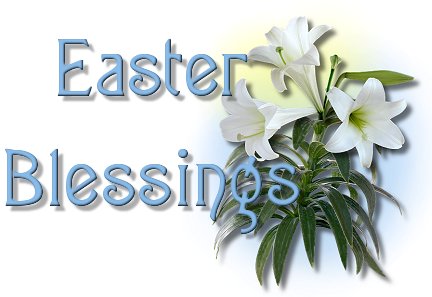
Lent is the forty-six day period just prior to Easter Sunday. It begins on Ash Wednesday. Mardi Gras (French for "Fat Tuesday") is a celebration, sometimes called "Carnival," practiced around the world, on the Tuesday prior to Ash Wednesday. It was designed as a way to "get it all out" before the sacrifices of Lent began. New Orleans is the focal point of Mardi Gras celebrations in the U.S.
The highlight of the year for Christians is Easter, the day when our Lord rose from the dead. Lent is a forty-day season of preparation for Easter. Lent always begins on a Wednesday, called Ash Wednesday.
For most Christians, Lent is a season of soul-searching, reflection and repentance. Lent is defined as the 40 weekdays from Ash Wednesday to Easter observed by the Roman Catholic, Eastern, and some Protestant churches as a period of penitence and fasting. Lent originated in the very earliest days of the Church as a preparatory time for Easter, when the faithful rededicated themselves and when converts were instructed in the faith and prepared for baptism. By observing the forty days of Lent, the individual Christian imitates Jesus' withdrawal into the wilderness for forty days.
Why 40 days? Because, Jesus fasted and was tempted in the wilderness for 40 days. Lent, then, is our time of fasting, prayer, temptation and repentance. Lent is not required anywhere in scriptures, but it has been a custom, which Christians have practiced for most of the last two thousand years.
In many languages, the word "Lent" actually means "fast." This is where the custom of giving up something for Lent originated.
However, just to confuse things, Lent is actually 46 days rather than 40 days. Why? Because the 40 days of Lent are supposed to be days of fasting, which means days of discipline and self-restraint. But Sunday, the Lord's Day, should never be a day of fasting, but a day of celebration! So each Sunday we suspend our Lenten disciplines and celebrate. Lent is 40 "fasting" days spread out over a total of 46 days beginning on Ash Wednesday.
The focus of Lent was always threefold:
In every case, it is a time for serious, disciplined self-examination, a time spent in intensive prayer and repentance before the cross of Calvary.
To represent the dark and serious business of Lent, one custom has been to strip the sanctuary of all flowers, candles, and colors during Lent. This custom helps us to turn inward and examine ourselves, even as it reminds us of the dark and colorless Sabbath day when Jesus lay dead in the tomb.
Put simply, Lent is a time to examine ourselves carefully. Here are some questions upon which you might pray and meditate during Lent:
What does Lent Have to do with Easter?
![]()
Ash Wednesday
In the Western church, Ash Wednesday is the first day of Lent and the seventh
Wednesday before Easter. Its name comes from the practice of placing ashes on
the foreheads of worshipers to symbolize death and sorrow for sin. In the
Orthodox Church, Lent begins on a Monday rather than on Ash Wednesday.
Holy Week (the week before Easter):
Palm Sunday
Palm Sunday is the Sunday before Easter Sunday. It recalls Jesus' triumphant
entry into Jerusalem one week before His execution, when people celebrated His
coming by throwing palm branches in His path. LUKE 19, MATTHEW 21
Holy Monday
Commemorates Jesus' cleansing of the temple, when He assaulted money changers
and overturned their tables, proclaiming the temple to be a house of prayer.
Some believe that this triggered His arrest and crucifixion. Luke 20,22
Holy Tuesday
Recalls Jesus' prediction made to His disciples on the Mount of Olives, of the
destruction of Jerusalem. Luke 20,22
Holy Wednesday
Recalls Judas' decision to betray Jesus in exchange for 30 pieces of silver
(once called Spy Wednesday). Luke 20,22
Maundy Thursday
Commemorates the Last Supper, Jesus agony in the garden and His arrest.
"Maundy" is derived from the Latin "mandatum" (commandment
of God in John 13:34-35) For centuries, people in authority have washed the feet
of their followers on this day. Also known as Holy Thursday. Luke 22; John 13, 18; Mark 14
Good Friday
Recalls Jesus death on the cross. The origin of the word "good" has
been lost. Some claim that it is a corruption of "God" and that the
early Christian called this day "God's Friday." Others claim that
"good" refers to the blessings of humanity that arose as a result of
Jesus' execution. Luke 22, 23; John 18,19; Matthew 27
Holy Saturday
The final day of Holy Week and of Lent, a day of sorrowful remembrance of Jesus'
time in the tomb.
Easter Sunday
Celebrates Jesus Christ's resurrection. In the early church, converts were
baptized into church membership on this day after a lengthy period of
instruction. This tradition continues today in some churches. Matthew 28; Mark 16; Luke 24; John 21
![]()
Why
Fast For Lent?
Many Christians give up certain habits, foods or luxuries for Lent. Why do they
do this?
Lent is 40 days in which the Christian Church remembers the suffering and death
of Christ, ending with Easter where Christians acknowledge Christ's conquering
of death so that our sins may be washed clean.
In remembering Lent, many Christians seek to identify with Christ's sacrifice by
giving up luxuries such as chocolate or red meat. Surely, these sacrifices are
not in any way comparable to the sacrifice that Christ made for us by suffering
through a corrupt trial, flogging, embarrassment and jeering...finally ending
with the ultimate sacrifice, His life.
We give things up to remember Christ's sacrifice that He made for us and to
remind us that through this sacrifice and the conquering of death, we are saved
and may join Him one day in heaven.
![]()
 Copyright © 2001-, Terry Muse
Copyright © 2001-, Terry Muse
Revised: March 25, 2002
URL: http://www.geocities.com/mounthollynj
Contact: Terry Muse